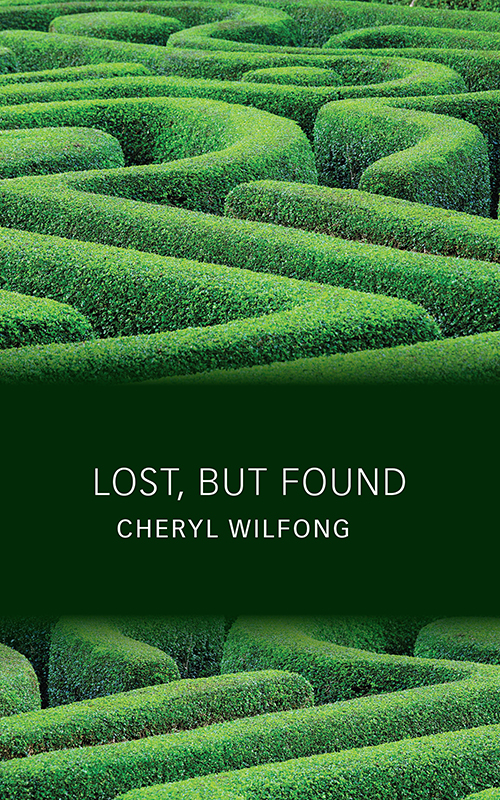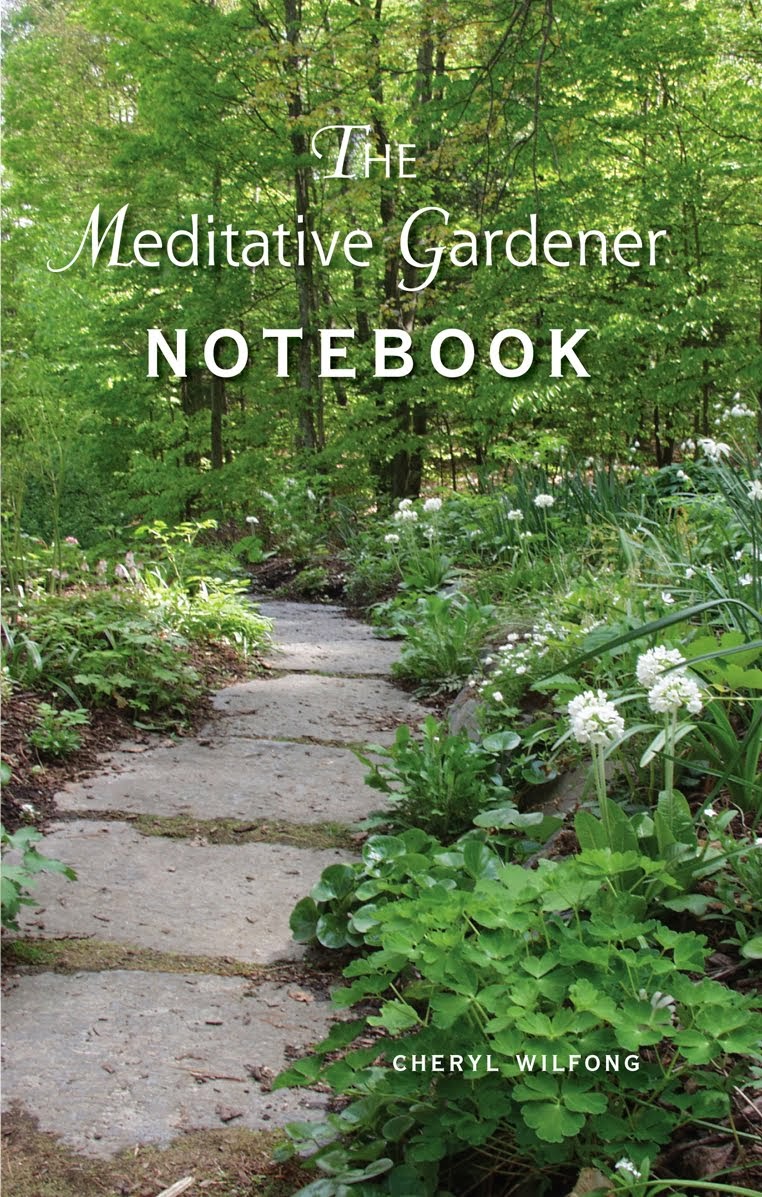Rain. Precious rain. After 4 months of drought here in the Northeast, with wells drying up and trees yellowing and dying, rain has been drizzling over the landscape for the past 24 hours. Not enough rain for flooding nor even enough for a good soak. Just a shower so that you can practically see the plants and shrubs and trees say, "Ahhhh."
We depend on water for our very lives. Our 70%-water bodies must surely resonate with showers, tubs, rivers, and lakes.
The aging process has been noticeably stressing crops, shrubs, and trees this year. In my home state of Indiana, corn is so dry that farmers are picking it a month early.
If we look closely we can see the effects of water drying up in our very bodies. Wrinkles, for instance, as well as the various warts and barnacles of aging skin. Dry mouth. Dry skin. Dry hair. Juicy spots that now require lubrication. Frozen shoulders. The body dries to parchment in very old age as water in the body "dries up."
This very body is just another manifestation of the nature we see around us.
Tuesday, September 28, 2010
Monday, September 27, 2010
Where Will You Be a Year From Now?
Expert garden writer and garden designer, Wayne Winterrowd died of heart failure last week at his home here in Vermont. Besides co-writing 3 gardening books and many articles for Horticulture magazine, he and his spouse, Joe Eck, designed many high-end gardens, including a 1-acre garden for my friend Florence.
Florence lives on a secluded "estate" of a few acres, about 35 minutes from town. She loves people and has, so far this year, attended 2 months of meditation retreats. When she saw Wayne and Joe last year, she told them she was putting her home and garden on the market.
"How could you?" Wayne asked. "Where are you going?"
Florence shrugged. She didn't know where she was going (and still doesn't).
"I know exactly where i'll be a year from now," Wayne said.
The mind really wants to believe that what it thinks is true. But thought is usually just a virtual reality having little to do with the facts of life. Death is one of those facts, one of those certainties. Only the time of death is uncertain.
Florence misses her friend and garden designer deeply. She continues to be haunted by that statement, "I know exactly where i'm going to be a year from now."
In the moment, it seemed that he was right, and she was wrong for not knowing, for wanting to sell her house in the first place. Yet he was not right, and she was not wrong. This is not to say that she was right, nor to say that he was wrong.
The mind wants to divide life into good and bad, right and wrong. But what if, what if there is simply is-ness?
Wayne Winterrowd is dead.
Florence still lives in her beautiful house and garden.
Florence lives on a secluded "estate" of a few acres, about 35 minutes from town. She loves people and has, so far this year, attended 2 months of meditation retreats. When she saw Wayne and Joe last year, she told them she was putting her home and garden on the market.
"How could you?" Wayne asked. "Where are you going?"
Florence shrugged. She didn't know where she was going (and still doesn't).
"I know exactly where i'll be a year from now," Wayne said.
The mind really wants to believe that what it thinks is true. But thought is usually just a virtual reality having little to do with the facts of life. Death is one of those facts, one of those certainties. Only the time of death is uncertain.
Florence misses her friend and garden designer deeply. She continues to be haunted by that statement, "I know exactly where i'm going to be a year from now."
In the moment, it seemed that he was right, and she was wrong for not knowing, for wanting to sell her house in the first place. Yet he was not right, and she was not wrong. This is not to say that she was right, nor to say that he was wrong.
The mind wants to divide life into good and bad, right and wrong. But what if, what if there is simply is-ness?
Wayne Winterrowd is dead.
Florence still lives in her beautiful house and garden.
Friday, September 24, 2010
Harvest: Bounty or Compost?
In this harvest season, i try to cook 2 or 3 vegetables from the garden for dinner every evening--broccoli or zucchini, chard or kale, and a salad entirely of tomatoes. I leave the leftovers in the fridge for my sweetie. When i return from a long weekend away, they're still there.
"You're supposed to have eaten these," i say, with one eye on the overflowing harvest basket i just brought in from the vegetable garden.
"Oh, i did," he says. "Except for that yellow squash. You deal with that."
This is when the bounty takes a dives into exasperation. Too much of a good thing leads to some form of suffering or other. I spend an hour after dinner slicing tomatoes for the food drier or blanching broccoli for the freezer.
Speaking of which, we're just about to buy a new 7-cubic-foot Energy Star freezer because we have too much food for the freezer.
"You're supposed to have eaten these," i say, with one eye on the overflowing harvest basket i just brought in from the vegetable garden.
"Oh, i did," he says. "Except for that yellow squash. You deal with that."
This is when the bounty takes a dives into exasperation. Too much of a good thing leads to some form of suffering or other. I spend an hour after dinner slicing tomatoes for the food drier or blanching broccoli for the freezer.
Speaking of which, we're just about to buy a new 7-cubic-foot Energy Star freezer because we have too much food for the freezer.
Thursday, September 23, 2010
Welcome Fall!
Welcome to Fall! Leaves are tinging yellow, orange, and ed here in the north country, hinting at the glorious colors to come.
When we first begin to meditate, we may receive just a taste of relaxation or joy. Then the mind gets busy and that luscious taste fades. "Oh, i can't do it right, we may think.
But anytime we take the time to pause in our lives--perhaps to sit with our eyes closed for just 5 minutes--we are developing the muscle of mindfulness that enables us to fall into calmness or happiness with grace.
When we first begin to meditate, we may receive just a taste of relaxation or joy. Then the mind gets busy and that luscious taste fades. "Oh, i can't do it right, we may think.
But anytime we take the time to pause in our lives--perhaps to sit with our eyes closed for just 5 minutes--we are developing the muscle of mindfulness that enables us to fall into calmness or happiness with grace.
Wednesday, September 22, 2010
Garden or Meditate Anywhere
This morning i woke up in a city, and after, meditation, went for a walk around the neighborhood. I saw gardens between the sidewalk and the curb, in the strip between the driveway and the house. Every few blocks i saw an entire front yard converted to garden. My host, a busy research psychiatrist, had a small vegetable patch in his backyard.
Gardens aren't limited as to placement and neither is our meditation. We can meditate on a cushion, in a chair, or while walking some blocks around the neighborhood. We can meditate while running or while standing in line at the grocery store. We can meditate while pumping gas or while driving. We might refer to these daily events as eyes-wide-open meditations.
This morning i meditated for 2 hours in an MRI. Lying absolutely still, my head sat in a harness, and my body was entirely inside a tube--a good place for an anxiety attack.
But anxiety is a hindrance to meditation, so i followed the instructions and meditated on my breath. A slow jack-hammer clanged around me, vibrating through my body.
Some runs later, the object of meditation changed to whatever i was noticing (also called choiceless awareness). The noise. The noise. The noise. Despite earplugs and earphones (so that i could hear the instructions from the technician and the researcher.) Well padded, yet inescapable noise that i simply sank into and found one tone that sounded like crickets in the yard.
Gardens aren't limited as to placement and neither is our meditation. We can meditate on a cushion, in a chair, or while walking some blocks around the neighborhood. We can meditate while running or while standing in line at the grocery store. We can meditate while pumping gas or while driving. We might refer to these daily events as eyes-wide-open meditations.
This morning i meditated for 2 hours in an MRI. Lying absolutely still, my head sat in a harness, and my body was entirely inside a tube--a good place for an anxiety attack.
But anxiety is a hindrance to meditation, so i followed the instructions and meditated on my breath. A slow jack-hammer clanged around me, vibrating through my body.
Some runs later, the object of meditation changed to whatever i was noticing (also called choiceless awareness). The noise. The noise. The noise. Despite earplugs and earphones (so that i could hear the instructions from the technician and the researcher.) Well padded, yet inescapable noise that i simply sank into and found one tone that sounded like crickets in the yard.
Sunday, September 19, 2010
Mullein: Weed or Flower?
Some years ago, i noticed white mullein growing by the roadside near a defunct wildflower nursery. "An escapee," i thought. I gathered some seeds and sowed them in my nursery bed.
Mullein is a weed that often stands sentinel along the side of the road. Growing a single stalk 5 to 8 feet tall, it has a few small non-descript yellow flowers scattered over its fuzzy gray-green height.
White-flowered mullein is unusual; this is how a weed becomes a wildflower. When it blooms in early July, the stalk is covered with joyful 2-inch wide white flowers.
Now i have dozens of these mullein volunteering in my sunny beds. It's fascinating to notice over the years how some plants, which you might not necessarily choose, choose you. They like the soil, the sun, the microclimate--something.
We define our "self" by our likes and dislikes. Then something we don't feel any particular affinity for "likes" us. Hmmm. Do we like it (or them) back? Or do we ignore it (or them)?
This is a great opportunity to investigate pleasant, unpleasant, and neutral.
Notice how something pleasant becomes neutral after a few moments.
Notice how something neutral might become pleasant. (Or perhaps unpleasant?)
Notice how something unpleasant becomes neutral if you keep your attention on it long enough instead of just reacting with "Ee-yoo."
Notice how that "weed" in your garden becomes beautiful once you notice its good qualities.
Mullein is a weed that often stands sentinel along the side of the road. Growing a single stalk 5 to 8 feet tall, it has a few small non-descript yellow flowers scattered over its fuzzy gray-green height.
White-flowered mullein is unusual; this is how a weed becomes a wildflower. When it blooms in early July, the stalk is covered with joyful 2-inch wide white flowers.
Now i have dozens of these mullein volunteering in my sunny beds. It's fascinating to notice over the years how some plants, which you might not necessarily choose, choose you. They like the soil, the sun, the microclimate--something.
We define our "self" by our likes and dislikes. Then something we don't feel any particular affinity for "likes" us. Hmmm. Do we like it (or them) back? Or do we ignore it (or them)?
This is a great opportunity to investigate pleasant, unpleasant, and neutral.
Notice how something pleasant becomes neutral after a few moments.
Notice how something neutral might become pleasant. (Or perhaps unpleasant?)
Notice how something unpleasant becomes neutral if you keep your attention on it long enough instead of just reacting with "Ee-yoo."
Notice how that "weed" in your garden becomes beautiful once you notice its good qualities.
Thursday, September 16, 2010
Giving Away Zucchinis
Zucchinis are a joke in my community. Once i found a big green dude strapped into my passenger seat with a seat belt. After a carpenter-friend had fixed some lighting in the bedroom, i found a baseball bat of a zucchini under my pillow. I myself have left zucchinis anonymously in neighbors' mailboxes.
You might call this generosity. Or you might not.
The Buddha defined 3 types of generosity: "cheapo" giving, which says, "I'm going to get rid of this anyway, so I might as well give it to you." Then there's the medium level of giving, which is sharing something that is valuable to you with others. However regal giving, or raja dana, is the most powerful form of giving. It is giving what is most precious to you.*
While putting junk zucchinis in unexpected places is good for a laugh, my heart feels happiest when I give my extra vegetables to the local food shelf.
*Thanks to Ajahn Amaro for this delineation of generosity.
www.buddhanet.net/budsas/ebud/ebdha161.htm
You might call this generosity. Or you might not.
The Buddha defined 3 types of generosity: "cheapo" giving, which says, "I'm going to get rid of this anyway, so I might as well give it to you." Then there's the medium level of giving, which is sharing something that is valuable to you with others. However regal giving, or raja dana, is the most powerful form of giving. It is giving what is most precious to you.*
While putting junk zucchinis in unexpected places is good for a laugh, my heart feels happiest when I give my extra vegetables to the local food shelf.
*Thanks to Ajahn Amaro for this delineation of generosity.
www.buddhanet.net/budsas/ebud/ebdha161.htm
Wednesday, September 15, 2010
End of Summer Vacation
It's the end of summer vacation for my houseplants. For the past 4 months, they've been lounging in the mottled shade under a second-story deck.
I've tanned; they've greened. My skin is less tender, and so is theirs. We're both healthier, more muscle-y. We both look downright tropical.
Now i bring them indoors, one by one, and line them up, according to height in my solarium
In ancient India, the Buddha instituted a 3-month long Rains Retreat, to keep the monks and nuns indoors during monsoon season. My plants and i retreat to the house to protect ourselves from the next 6 months of frosts.
My personal retreat season begins in October this year and continues intermittently into January.
I've tanned; they've greened. My skin is less tender, and so is theirs. We're both healthier, more muscle-y. We both look downright tropical.
Now i bring them indoors, one by one, and line them up, according to height in my solarium
In ancient India, the Buddha instituted a 3-month long Rains Retreat, to keep the monks and nuns indoors during monsoon season. My plants and i retreat to the house to protect ourselves from the next 6 months of frosts.
My personal retreat season begins in October this year and continues intermittently into January.
Tuesday, September 14, 2010
Dirt in the Trunk
Now is the season to make the last trip to the nursery or garden center to buy those perennials or shrubs that can hardly wait to shrug off their containers, like a coat grown too small.
Great deals are there for the spending, under the disguise of "Save 50%." We could save 100% by not buying anything, but desire trumps logic any day.
So we load plants into the trunk of our car, maybe overflowing onto the floor of the back seat. Some women carry the protection of an old shower curtain or an old rug, but i always was an au-naturel girl. After i arrive home and unload, crumbs of dirt and a dead leaf or two remind me day after day, week after week to clean up after myself.
Desire is the culprit that weakens our integrity, that pushes us to tell a white lie, to fudge a bit, to keep the incorrect change that is given, to kill pests because we hate them, to drink one too many glasses of wine.
Our conscience knows. Our conscience has the integrity to notice our crummy behavior. But we throw those thoughts into the trunks of our mind and try not to notice.
When we finally get around to cleaning up our act, we feel so much better. Ahhh. We can breathe again.
Great deals are there for the spending, under the disguise of "Save 50%." We could save 100% by not buying anything, but desire trumps logic any day.
So we load plants into the trunk of our car, maybe overflowing onto the floor of the back seat. Some women carry the protection of an old shower curtain or an old rug, but i always was an au-naturel girl. After i arrive home and unload, crumbs of dirt and a dead leaf or two remind me day after day, week after week to clean up after myself.
Desire is the culprit that weakens our integrity, that pushes us to tell a white lie, to fudge a bit, to keep the incorrect change that is given, to kill pests because we hate them, to drink one too many glasses of wine.
Our conscience knows. Our conscience has the integrity to notice our crummy behavior. But we throw those thoughts into the trunks of our mind and try not to notice.
When we finally get around to cleaning up our act, we feel so much better. Ahhh. We can breathe again.
Monday, September 13, 2010
Dry Gardens; Dry Meditation
Ordinarily i would have begun transplanting perennials and shrubs 3 weeks ago. Dividing bunches of phlox and mums in half and merrily moving short or tall plants to their proper class-photo place in a flower bed. But we are still in a drought here in New England.
I heard that a backhoe digging down 4 feet found only dryness. Dug wells, 10 or 12 feet deep, have dried up as the water table has sunk, and the people in those homes are having to buy water. Quite an unusual event for this green state i live in.
My sweetie beseeches me to water the gardens--a daunting task that makes me wish i had irrigation.
Sometimes our meditation practice feels dry. This is just when people give up meditating. Maybe they decide to try something juicier--psychic reading, enneagrams, astrology, jogging.
How to water a dry practice? Find something interesting, change your object of meditation, or change your meditation posture.
Make walking or standing meditation your main form. Or if you are daring, lying down meditation; do a body scan.
Change your object of meditation to hearing or to sensations. Or spend a year practicing loving-kindness. If you experience a dry spell, move to compassion. If that dries up, practice appreciative joy. Then equanimity. And start again.
Commit to a teacher and call or e-mail them once a month. If you can, sign up for a retreat, even if it's only a day-long or a weekend.
My mind is such that i find investigation very interesting. Take a high-lighted or underlined phrase from the spiritual book you are reading, and spend your entire meditation session contemplating that. Go ahead and turn it over in your mind, word by word, phrase by phrase.
Water your practice now. Trust me. You will see blooms by next summer.
I heard that a backhoe digging down 4 feet found only dryness. Dug wells, 10 or 12 feet deep, have dried up as the water table has sunk, and the people in those homes are having to buy water. Quite an unusual event for this green state i live in.
My sweetie beseeches me to water the gardens--a daunting task that makes me wish i had irrigation.
Sometimes our meditation practice feels dry. This is just when people give up meditating. Maybe they decide to try something juicier--psychic reading, enneagrams, astrology, jogging.
How to water a dry practice? Find something interesting, change your object of meditation, or change your meditation posture.
Make walking or standing meditation your main form. Or if you are daring, lying down meditation; do a body scan.
Change your object of meditation to hearing or to sensations. Or spend a year practicing loving-kindness. If you experience a dry spell, move to compassion. If that dries up, practice appreciative joy. Then equanimity. And start again.
Commit to a teacher and call or e-mail them once a month. If you can, sign up for a retreat, even if it's only a day-long or a weekend.
My mind is such that i find investigation very interesting. Take a high-lighted or underlined phrase from the spiritual book you are reading, and spend your entire meditation session contemplating that. Go ahead and turn it over in your mind, word by word, phrase by phrase.
Water your practice now. Trust me. You will see blooms by next summer.
Sunday, September 12, 2010
Which Path?
My partner Bill and i go outdoors together and engage in parallel play. He does wood; i do dirt. He looks up to the trees around our house; i look down to flowers and weeds.
Occasionally we call to each other, "Hey! I need a consultation over here." We enjoy the bnefit of an extra set of eyes, another mind with creative ideas.
In the evening, after dinner, we stroll through the garden. He plans which branches to prune; i decide which plants i want to move. The effect is gracious as he subtracts trees at the edge of the woods, and i add flowering plants.
Our friends may follow a different spiritual path than we do, yet we still may gain from the cross-fertilization of meditation and contemplation. Although i am completely happy with my path of Theravadin Buddhism (from Southeast Asia), and i highly recommend it, i never cease to be amazed at the different doors that people walk through. One friend loves Thich Nhat Hanh. Another is so "Tibetan," that path obviously fits him better. And then there's that out-of-the box Zen friend.
Never mind that our minds don't work in the same ways. We can call on our spiritual friends for consultation in our lives when we need that. Our mutual goal is kindness.
Occasionally we call to each other, "Hey! I need a consultation over here." We enjoy the bnefit of an extra set of eyes, another mind with creative ideas.
In the evening, after dinner, we stroll through the garden. He plans which branches to prune; i decide which plants i want to move. The effect is gracious as he subtracts trees at the edge of the woods, and i add flowering plants.
Our friends may follow a different spiritual path than we do, yet we still may gain from the cross-fertilization of meditation and contemplation. Although i am completely happy with my path of Theravadin Buddhism (from Southeast Asia), and i highly recommend it, i never cease to be amazed at the different doors that people walk through. One friend loves Thich Nhat Hanh. Another is so "Tibetan," that path obviously fits him better. And then there's that out-of-the box Zen friend.
Never mind that our minds don't work in the same ways. We can call on our spiritual friends for consultation in our lives when we need that. Our mutual goal is kindness.
Wednesday, September 8, 2010
The Cricket-Piano Duet
My sweetie, Bill, is a concert pianist who practices the piano 2 - 4 hours a day. Meditation is also a skill that requires practice.
Last evening, Bill inadvertently left the outside door slightly ajar. As he played, a cricket hopped in and came to the piano to "sing along."
"That cricket wanted to mate with my piano," Bill said.
One of the effects of our own practice of meditation is that we find more access to beautiful states of mind. At first the joy, happiness, or calm may be only momentary, but, with practice, we find these beautiful states of mind living with us more often. Our friends feel even more comfortable with us. And, maybe even a cricket.
Last evening, Bill inadvertently left the outside door slightly ajar. As he played, a cricket hopped in and came to the piano to "sing along."
"That cricket wanted to mate with my piano," Bill said.
One of the effects of our own practice of meditation is that we find more access to beautiful states of mind. At first the joy, happiness, or calm may be only momentary, but, with practice, we find these beautiful states of mind living with us more often. Our friends feel even more comfortable with us. And, maybe even a cricket.
Tuesday, September 7, 2010
When Does Your Meditation Practice Bloom?
Although i have tried a wide variety of annuals--for color--over the years, i find i return to some that predictably bloom for me. Begonias in the sandy soil outside the basement door. Impatiens in the semi-shade of the north side of the house.
In my cutting beds, i rely on certain annuals to volunteer year after year--poppies, bachelor buttons, spider flower (Cleome), Nicotiana, love-in-a-mist (Nigella). In recent years i have planted zinnias for their reliability and range of color.
I have sort of given up on the annuals i love, but which just don't perform in my conditions. Cosmos bouquets disappoint me because they are so short-lived. For years, i thought geraniums and portulaca should bloom in a hot, dry spot; but they don't. I now put my geraniums in a pot on the front stoop, and think the Swiss are onto something with their geraniums in window boxes.
When we are learning to meditate, we may try various teachers and various approaches to meditation. Over time, we find that one of these schools of meditation fits us better even though our friends are on to something else. We let go of the approaches that don't quite bloom for us, even though they do for other people.
We feel more at home with particular teachings. We settle into our choice. And our own practice flowers.
In my cutting beds, i rely on certain annuals to volunteer year after year--poppies, bachelor buttons, spider flower (Cleome), Nicotiana, love-in-a-mist (Nigella). In recent years i have planted zinnias for their reliability and range of color.
I have sort of given up on the annuals i love, but which just don't perform in my conditions. Cosmos bouquets disappoint me because they are so short-lived. For years, i thought geraniums and portulaca should bloom in a hot, dry spot; but they don't. I now put my geraniums in a pot on the front stoop, and think the Swiss are onto something with their geraniums in window boxes.
When we are learning to meditate, we may try various teachers and various approaches to meditation. Over time, we find that one of these schools of meditation fits us better even though our friends are on to something else. We let go of the approaches that don't quite bloom for us, even though they do for other people.
We feel more at home with particular teachings. We settle into our choice. And our own practice flowers.
Monday, September 6, 2010
Peppers Like It Hot
Returning from a hot vacation in the Southwest, i go out to the vegetable garden and find a dozen red peppers and another dozen somewhere on the green-yellow-red spectrum. In a northern garden, such as mine, i treasure red peppers. With a short growing season, green peppers are a cinch, but orange, yellow, purple or red are chancy because peppers like it hot. And this summer has been hot.
Given the proper conditions, our meditation practice will also ripen in time, and we can harvest the fruits (or vegetables) of a spiritual life.
The question is: How long is our growing season?
Since we don't really know when the frost will fall on our own life, the time to meditate is now.
Given the proper conditions, our meditation practice will also ripen in time, and we can harvest the fruits (or vegetables) of a spiritual life.
The question is: How long is our growing season?
Since we don't really know when the frost will fall on our own life, the time to meditate is now.
Subscribe to:
Posts (Atom)



















